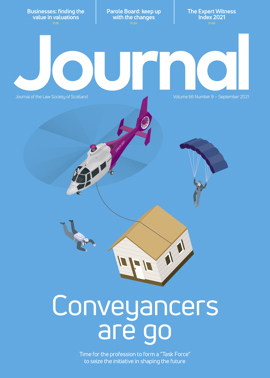The potency of passion

Does “do what you love” sound self-indulgent, and idealistic? Do you think it’s the kind of thing one might say to a child, not responsible advice for adults making their way in a tough world? Would you say that if you love what you do, that’s a bonus, but loving our job lags well behind the imperative of doing what we need to do to make a living?
This “realistic” view of work is a great mistake, and in our profession has real consequences. Countless surveys show that the majority of lawyers are unhappy or dissatisfied with their lot. The usual suspects are stress, long hours, and indifferent management. But an equally plausible reason is that in making career choices, “What am I passionate about?” is often either a second-order question, or barely a question at all.
Jim Collins’ Good to Great is one of the most influential business books ever written. Central to it is the idea that every company which has ever made that leap has had what he calls a “hedgehog concept”. It takes its name from the famous essay by Isaiah Berlin about the Greek fable of the fox, “which knows many things”, and the hedgehog, “which knows only one big thing”. He encapsulates the hedgehog concept in a Venn diagram, where the unifying “one big thing” emerges at the intersection of these three questions: What are you deeply passionate about? What can you be best in the world at? What drives your economic engine, namely, the external commercial and economic factors that create a demand for what you do? Note that passion is given equal weight to the other two. Being the best, and market demand, may result in a measure of success, but without passion, greatness is impossible.
The inventor and industrialist Sir James Dyson is a fine example. In the years spent perfecting his famous bagless vacuum cleaner, he was funded by his wife’s salary as an art teacher. Mortgaged to the hilt, he built 5,126 prototypes, before 5,127 hit the jackpot. Today, he has hoovered up a fortune of £16.3 billion, rather more than enough to retire at the age of 74. But he is not going anywhere. On his Wiltshire estate, he has a “garden shed”, a giant aircraft hangar full of pulleys, hoists and machine tools, where he is at his happiest. He is a brilliant man, yet without the passion to keep inventing, and overcome many failures, he would never have achieved so much.
Shifting the spotlight
“I am the master of my fate. I am the captain of my soul.” William Henley’s Invictus speaks to a deep desire in us all. But the normal human state is neither dependence nor independence, but interdependence. We cannot be our best selves without the goodwill and encouragement of others.
Firm leaders have a profound responsibility to help their people be their best selves, to find their personal hedgehog concept for the sake of their own wellbeing, and the prosperity of the business. Yet, “What are you passionate about, and how can we help you pursue it?”, is too little asked in staff appraisal, where the focus tends to be on what the individual can do for the firm, not vice versa: What are their billing targets? Can they be increased? How will they bring in new work? Can they be more efficient, or productive? This approach was never right, and if firms want to retain their brightest people it is completely unsustainable, now that the pandemic has caused so many of us to reassess how we want to spend our lives.
Sometimes, no matter how enlightened one’s employer, tradeoffs are inevitable as between the needs of the business and personal aspiration. In a recent thoughtful article for Harvard Business Review, the authors suggest the right question is: “Can my career be a conduit to passion?” As they explain, “Reframing the question this way frees you up to honestly weigh the pros and cons of pursuing your passion through work. Follow up with questions like: Which industries will allow me to pursue my passion? How do the constraints of these industries align, or conflict with, my other goals – like my desire to have a family, spend time on my hobbies, build wealth, or choose where I want to live? You can also play Devil’s advocate and ask: Do I need to pursue my passion through my work? What would it look like to pursue this passion outside of work? Would it be equally fulfilling?”
Wherever your passion lies, be honest about it, especially with yourself, and keep it front and centre, whenever you are faced with important career decisions. We pass this way but once. Don’t pass up the opportunity.
Regulars
Perspectives
Features
Briefings
- Civil court: Legacy of COVID
- Corporate: The enigma of economic duress
- Employment: where will work be found?
- Intellectual property: David v Goliath battle continues
- Agriculture: Crofting disputes: some first principles
- Sport: Arbitration – within the rules?
- Property: ADS: the hidden traps
- In-house: On harm, stakeholders and risk management
In practice
- Ask Ash: Colleague's chat is my privacy
- Lockdown no more
- The Word of Gold: The potency of passion
- Get interactive at the Law and Technology Conference
- Ten red flags for conveyancers
- The Eternal Optimist: So, what do you want to be?
- Commissary: the top 10 failings
- Mobility challenges – and the kindness of strangers
- When all is remote






